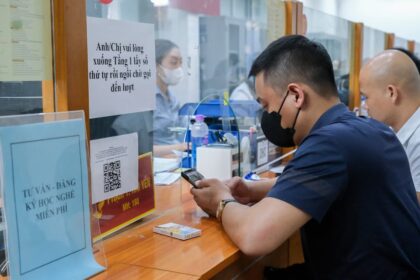South Korea’s Telecom Giant Breached: What Happened at SK Telecom?
In one of the most significant cybersecurity incidents in South Korean history, SK Telecom (SKT)—the country’s largest mobile carrier—suffered a massive data breach that exposed sensitive information of nearly all its subscribers. The breach, which began as early as August 2021 but was only discovered in April 2025, has sent shockwaves through the nation’s digital infrastructure, raising urgent questions about corporate responsibility, national security, and the future of data protection in South Korea.
- South Korea’s Telecom Giant Breached: What Happened at SK Telecom?
- How Did the Breach Happen? Tracing the Timeline and Attack Methods
- What Data Was Stolen? The Scale and Risks of the Breach
- Who Was Behind the Attack? Theories and International Investigation
- How Did SK Telecom Respond? Apologies, Compensation, and Security Overhaul
- What Did the Government Do? Regulatory Action and Penalties
- Why Was SKT So Vulnerable? Systemic Issues in Korean Cybersecurity
- What Should Customers Do? Practical Steps for Protection
- Broader Implications: National Security and the Future of Telecom
- In Summary
Authorities have since confirmed that hackers infiltrated SKT’s core network, exfiltrating almost 10 gigabytes of data, including critical SIM card authentication information for up to 27 million users. The fallout has been swift and severe: government investigations, public apologies, customer exodus, and the threat of record-breaking fines. But the story is more than a tale of technical failure—it is a wake-up call for the entire telecommunications industry and a case study in the evolving landscape of cyber threats.
How Did the Breach Happen? Tracing the Timeline and Attack Methods
The breach at SK Telecom was not a sudden smash-and-grab. Instead, it was a slow, stealthy infiltration that went undetected for years. According to a joint investigation by the Ministry of Science and ICT and private cybersecurity experts, the attackers first planted malware on SKT’s internal servers as early as August 6, 2021—almost ten months earlier than initially believed. The malware, including at least 27 variants of a sophisticated Linux backdoor known as BPFDoor, allowed the hackers to move laterally within SKT’s network and ultimately access the Home Subscriber Server (HSS), the central database managing subscriber authentication and identity.
BPFDoor is a tool often associated with advanced persistent threat (APT) groups, which are typically well-funded and sometimes state-sponsored. Its ability to remain hidden and bypass traditional security measures made it especially dangerous. Investigators found that the attackers exploited vulnerabilities in SKT’s network management systems, possibly leveraging weaknesses in third-party software such as Ivanti VPN devices—a vector that has been linked to China-backed hacking groups in other global incidents.
Once inside, the hackers exfiltrated 9.82 gigabytes of Universal Subscriber Identity Module (USIM) data, which included International Mobile Subscriber Identity (IMSI) numbers—unique identifiers for every SIM card. This data is crucial for authenticating users on mobile networks and, if misused, could enable SIM cloning or interception of two-factor authentication codes sent via SMS.
Alarmingly, investigators discovered that much of this sensitive data, including device identifiers and call detail records, was stored in plaintext rather than being encrypted. This lack of basic security hygiene made the breach far more damaging than it might have been otherwise.
What Data Was Stolen? The Scale and Risks of the Breach
The scale of the SKT breach is staggering. Nearly 27 million IMSI records were leaked—more than SKT’s active subscriber base, suggesting that even users of smartwatches, IoT devices, and possibly former customers were affected. The compromised data included:
- IMSI numbers (mobile “fingerprints”)
- USIM authentication keys
- Phone numbers
- Device identifiers (with some evidence of IMEI exposure)
- Call detail records (CDRs), though SKT claims these were encrypted
While SKT maintains that names, addresses, and financial account details were not exposed, the theft of USIM and IMSI data is still highly significant. With this information, attackers could theoretically clone SIM cards, intercept SMS-based authentication codes, or attempt SIM-swap fraud—a tactic where criminals hijack a victim’s phone number to gain access to online accounts.
So far, there have been no confirmed reports of widespread fraud or misuse of the stolen data. However, the risk remains, and authorities have urged all affected users to replace their SIM cards and enroll in enhanced protection services.
Who Was Behind the Attack? Theories and International Investigation
The question of who orchestrated the SKT breach remains officially unanswered, but mounting evidence points toward a highly skilled, possibly state-sponsored actor. The use of BPFDoor malware, previously linked to Chinese APT groups such as Salt Typhoon and Red Mansion, has fueled speculation of foreign involvement. Taiwanese cybersecurity firm TeamT5 reported that vulnerabilities in Ivanti VPN devices—used by many South Korean firms, including SKT—were being exploited globally by China-linked hackers around the same time as the SKT breach.
South Korean police, in cooperation with law enforcement agencies from five other countries (including the United States), are actively investigating the attack. Over 100 suspicious IP addresses have been identified, and international data requests have been made to 18 foreign corporations. Despite speculation, authorities have not officially attributed the attack to any specific nation or group, and the investigation is ongoing.
Cybersecurity experts note that the long-term, stealthy nature of the breach suggests motives beyond simple financial gain. Professor Lim Jong-in, a cyber defense expert at Korea University, commented that such operations are typically the work of nation-state actors seeking long-term access or intelligence, rather than ordinary cybercriminals.
How Did SK Telecom Respond? Apologies, Compensation, and Security Overhaul
SK Telecom’s response to the breach has been multifaceted, but not without controversy. After the breach was publicly disclosed in April 2025, the company issued a public apology, with CEO Ryu Young-sang calling it “the most severe security breach in the company’s history.” SK Group Chairman Chey Tae-won also apologized, pledging to take full responsibility for any harm caused.
To mitigate the fallout, SKT launched several customer-focused initiatives:
- Free SIM card replacements for all 23 million users at over 2,600 retail stores
- A 50% discount on August subscription fees for all customers
- Enhanced SIM protection services to prevent unauthorized porting or swapping
- Waiver of early contract termination penalties for affected customers
The company estimates that if up to 5 million customers decide to leave, combined losses from waived penalties and lost revenue could exceed 7 trillion won (about $5.1 billion). Already, hundreds of thousands of users have switched to rival carriers, and SKT’s stock price has suffered a significant drop.
On the technical front, SKT has announced a sweeping “Accountability and Commitment Program,” pledging to invest 700 billion won ($514 million) over five years to rebuild its information protection systems. This includes:
- Doubling the size of its cybersecurity team
- Elevating the Chief Information Security Officer (CISO) role to report directly to the CEO
- Quarterly security audits and regular penetration testing
- Full encryption of USIM authentication keys (a standard already adopted by competitors KT and LG Uplus)
- Deployment of advanced endpoint detection and response solutions
- Establishment of a “Red Team” to proactively hunt for vulnerabilities
SKT has also set up a 10 billion won ($7.3 million) fund to foster cybersecurity talent in South Korea, partnering with universities and supporting startups in the field.
What Did the Government Do? Regulatory Action and Penalties
The South Korean government has taken a hard line in response to the SKT breach. The Ministry of Science and ICT, after a thorough investigation, concluded that SKT was negligent in its duty to protect subscriber data. Vice Minister Ryu Je-myung stated that SKT failed to fulfill its security obligations and violated notification requirements by not reporting the breach within the legally mandated 24-hour window.
As a result, authorities have imposed several penalties and mandates:
- A fine of up to 30 million won for regulatory violations (with the possibility of much larger penalties under the Personal Information Protection Act)
- Mandatory quarterly security inspections and log retention for at least six months
- Obligation to allow contract cancellations without penalty for affected customers
- Referral for criminal investigation over failure to comply with data preservation orders
The Personal Information Protection Commission (PIPC) is considering a record-breaking fine, potentially up to 3% of SKT’s annual revenue—an amount that could exceed 530 billion won. The PIPC has also criticized the general lack of investment in cybersecurity among major Korean conglomerates, calling for stronger personnel and budget commitments across the industry.
Why Was SKT So Vulnerable? Systemic Issues in Korean Cybersecurity
The SKT breach did not occur in a vacuum. It is part of a broader pattern of cybersecurity challenges facing South Korea. Despite being one of the world’s most digitally advanced societies, many Korean companies have historically underinvested in cybersecurity. A 2024 government survey found that only 8.7% of businesses believed they needed dedicated cybersecurity staff, and even among large firms, just 14% saw it as a priority. Pay for cybersecurity professionals in Korea lags far behind global standards, making it difficult to attract and retain top talent.
Most companies rely on IT staff who juggle multiple roles, and only a minority have full-time security specialists. This systemic underinvestment has left even critical infrastructure providers like SKT exposed to sophisticated attacks. The government has acknowledged these shortcomings and is pushing for industry-wide reforms, but the SKT incident underscores the urgent need for change.
What Should Customers Do? Practical Steps for Protection
For the millions of SKT subscribers affected by the breach, experts and authorities recommend several immediate actions to reduce the risk of fraud or unauthorized access:
- Replace your SIM card: SKT is offering free replacements, which invalidate compromised authentication keys.
- Enroll in SIM protection services: This electronically binds your phone number to your current SIM, preventing unauthorized porting or swapping.
- Be wary of phishing attempts: Only trust official communications from SKT and avoid clicking on suspicious links or sharing personal information in response to unsolicited messages.
- Re-authenticate and monitor accounts: Log out and back into critical apps, monitor financial accounts for unusual activity, and update passwords. Enable multi-factor authentication (preferably not SMS-based) where possible.
- Stay informed: Follow official updates from SKT and government agencies for the latest guidance and support channels.
Implementing these steps can significantly reduce the risk of SIM-swap fraud and other potential abuses stemming from the breach.
Broader Implications: National Security and the Future of Telecom
The SKT breach is more than a corporate crisis—it is a national security issue. As the flagship wireless carrier, SKT is a cornerstone of South Korea’s digital infrastructure, supporting not only mobile communications but also financial transactions, identity verification, and critical services. The breach has exposed vulnerabilities that could be exploited for espionage, surveillance, or disruption of essential systems.
Government officials and cybersecurity experts have warned that the incident should serve as a wake-up call for the entire industry. Science Minister Yoo Sang-im stated:
“This SKT breach is a wake-up call for the entire telecommunications industry and our national network infrastructure. As Korea’s top mobile carrier, SKT must prioritize cybersecurity.”
The government is now considering stronger regulations, increased fines, and mandatory security standards for all telecom operators. There is also a renewed focus on international cooperation, as cyber threats increasingly cross national borders and require coordinated responses.
In Summary
- SK Telecom suffered a massive data breach, exposing sensitive SIM authentication data for up to 27 million users.
- The breach began in August 2021 but was only discovered in April 2025, highlighting failures in detection and response.
- Hackers used sophisticated malware, likely BPFDoor, linked to advanced persistent threat groups with possible ties to China.
- Stolen data included IMSI numbers, USIM keys, and phone numbers, raising risks of SIM cloning and fraud.
- SKT has offered free SIM replacements, fee waivers, and a major investment in cybersecurity, but faces record fines and customer losses.
- The government has imposed penalties, mandated reforms, and launched a criminal investigation into SKT’s handling of the breach.
- The incident exposes systemic weaknesses in South Korea’s cybersecurity posture, especially among major corporations.
- Customers are urged to replace SIM cards, enroll in protection services, and remain vigilant against fraud.
- The breach has national security implications and is prompting industry-wide reforms and international cooperation.












